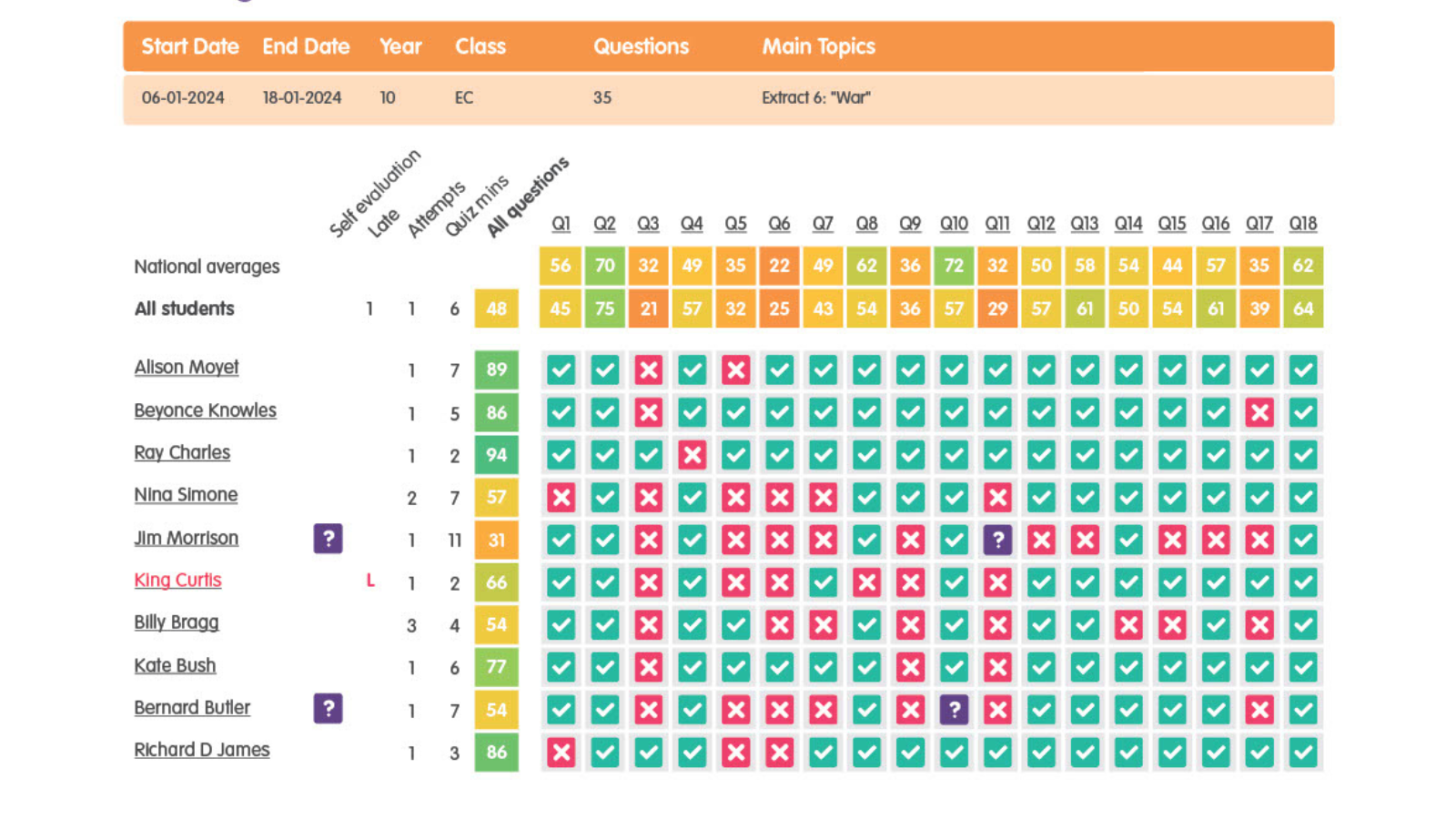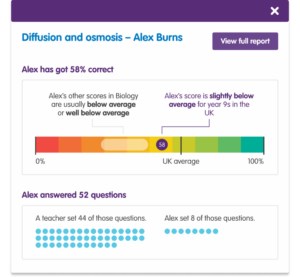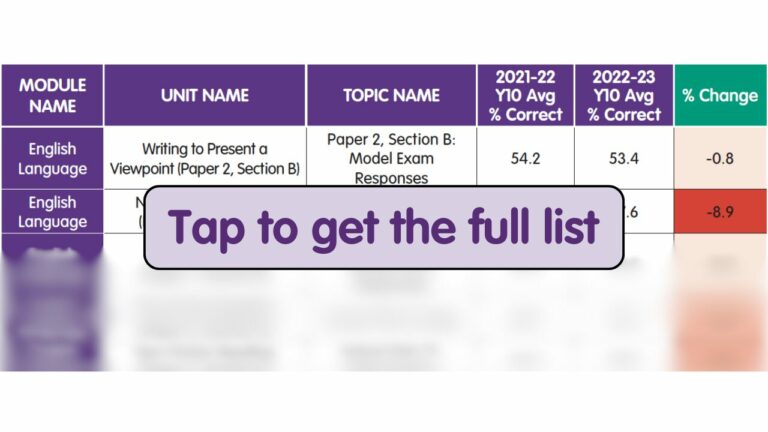Identifying learning gaps within school could be a challenge. They can stem from a variety of places and reasons – and they are not just limited to students. Teachers can often feel overwhelmed with the amount of time needed to mark work, the depth of skills and analytical processes to be taught and the pressure of the inevitable subjectivity during assessments.
What are different types of knowledge gaps?
Did you know that the learning gaps can impact confidence, comprehension, and results? It becomes really important to understand these gaps that can help teachers with the focused support, lesson plans and homework tasks.

Knowledge Gaps: knowledge is an underrated yet essential skill in English. For example, it’s difficult for students to progress to analysis of themes or characters with the knowledge of the key plot points in a literature text. It’s a common phenomenon in students and really challenging for teachers.
Teaching Gaps: understaffing and a lack of time are common occurrences in schools. Finding the right resources and evaluation tools is crucial to bridge these gaps so students can flourish.
Skill Gaps: Students must have the practice necessary to develop the everyday skills required to complete tasks. The common skill gaps include critical thinking and communication skills.
Motivation Gaps: Students may need more motivation to advance their knowledge or skills in a school environment due to low self-esteem.
Environmental Gaps: The student environment should be conducive to learning. These are related to external system, namely the school, peer pressure, the family, the community, and the media. These social systems influence students daily.
Communication Gaps: this relates to language issues and learners’ verbal and non-verbal communication gaps. Students can experience breakdowns in communication with teachers, the learning material, and peers.
After collating and examining UK-wide data collected through Educake’s online learning and assessment platform, we’ve built a national picture of knowledge across English language, English Skills, and English Literature. Through this, we have been able to identify the most common gaps within each unit across the board at a national level.
Here’s a list of top ten English Skills topics, such as spelling, punctuation, grammar and vocabulary, with the lowest average performance.
How to utilise this data?
If we look closer, there seems to be a significant vocabulary gap in GCSE English. Educake vocabulary practice lists are based on challenging tier 3 vocabulary words and are designed to help students recognise and use more precise modes of expression.
There’s also, perhaps unsurprisingly, a lack of clarity around use of colons, semicolons and apostrophes. These students may miss out on opportunities to grab AO6 marks for variety and control of punctuation in the Language papers.
Next, let’s delve into the top ten English Language topics with the lowest average performance.
We can see here that many students lack understanding of what’s expected of them in the writing sections of the language papers. These “model exam response” questions on Educake help students to ensure they know what to expect and how to structure their writing, so they can avoid wasting precious time in the exam.
In terms of the reading sections, non-fiction seems to present a particular challenge. For AQA, this could be due to the difficulty of comprehending an unseen 19th century text. Regular exposure and practice are key to improving comprehension, but this likely requires considerable teacher time, which we know is in short supply, to support students who may not read even contemporary texts regularly.
Bridge the learning gaps and make knowledge stick, with Educake
Educake helps you pinpoint the understanding and misconceptions for every student in your class, napped against the national averages. We provide automatically customised, low-stakes quizzes targeted at the knowledge gaps of each individual student

How can Educake reduce the knowledge gaps in your classroom?
Knowledge Gaps: Retrieval Practice Students can read the same revision guide repeatedly, but the learning will only stick if they actively engage with the material.
Communication Gaps: Feedback Answer explanations help students understand why an answer is correct and provide added context. This saves time for the teacher and promotes independent study and revision from the student.
Skills Gaps: Spaced Repetition is a known teaching practice to ensure understanding of a topic is more firmly embedded in their long-term memory. Create spaced repetition routines easily by scheduling quizzes in advance or have students revisit earlier tests.
Motivational Gaps: Interleaving Switching between English topics while learning allows students to create links in their own understanding and distinguish between concepts.
Plug learning gaps with online homework and revision. Educake saves time for teachers and builds student confidence.
What’s new?
Try our brand new analyse results section!
Identify areas of intervention at student, subject or school level. Compare school performance to students nationally. Try it for free now and don’t pay until September!






